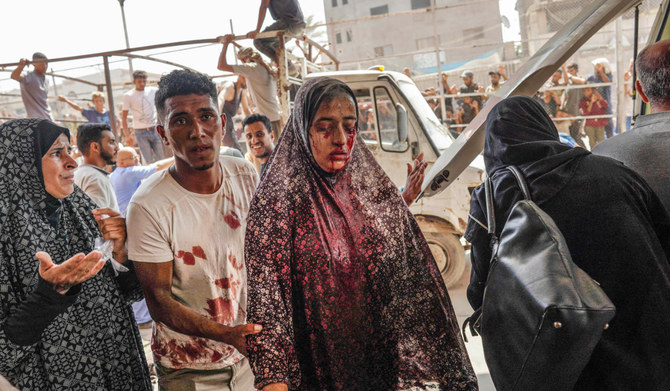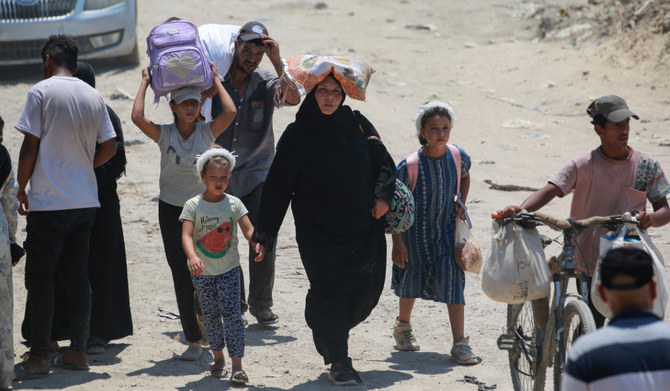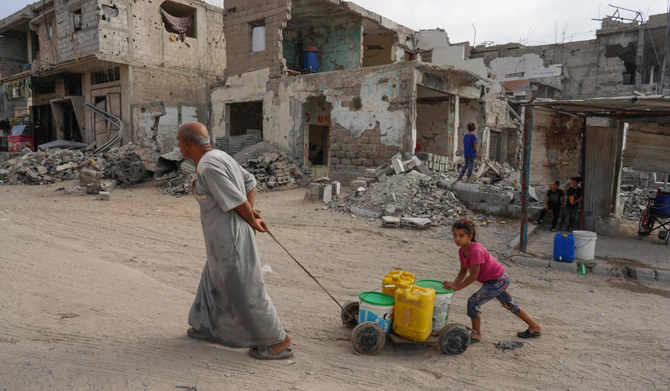DOHA: An Israeli delegation will travel to Doha on Thursday to discuss new demands for a Gaza truce and hostage-prisoner exchange, a source with knowledge of the talks said.
The delegation would meet with mediator Qatar’s Prime Minister Mohammed bin Abdulrahman Al-Thani to discuss three Israeli requests, including control over the return of civilians to northern Gaza, the source said on condition of anonymity because of the sensitivity of talks.
Qatar, along with Egypt and the United States, has been engaged in months of behind-the-scenes efforts to broker a Gaza truce and a hostage-prisoner swap.
A proposed cessation of hostilities focuses on a phased approach, beginning with an initial truce.
Recent discussions have centered on a framework outlined by US President Joe Biden in late May, which he said had been proposed by Israel.
The source said Israel had requested its forces remain in the so-called Philadelphi corridor, a 14-kilometer (8.5-mile) stretch along the Gaza-Egypt border, and that it controls the return of displaced Gazan civilians to the north of the Palestinian territory.
Israel has also asked that its troop positions in Gaza be resolved before the truce begins, the source added.
The source said the points were negotiable and an agreement was “doable,” provided Israel does not remain in Gaza “indefinitely” and a solution is found for the Philadelphi corridor, with Egyptian mediators leading these efforts.
But the source said Israel’s return with extra demands was “a recurring theme” in the talks and Israel had “moved the goalposts.”
Israeli Prime Minister Benjamin Netanyahu left for Washington on Monday under significant domestic and international pressure to agree to a truce and hostage-prisoner exchange in Gaza.
Despite this pressure, Netanyahu maintains that increased military pressure on the militants is the best route to a deal.
On Sunday, the premier’s office said he was sending a negotiating team for new talks on a truce deal.
Except for a one-week truce in November, during which 80 Israeli hostages were freed in exchange for 240 Palestinians held in Israeli prisons, talks have repeatedly foundered over differences between the parties.































